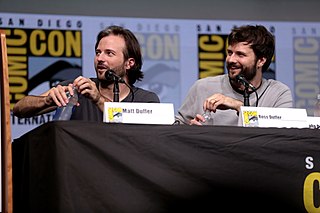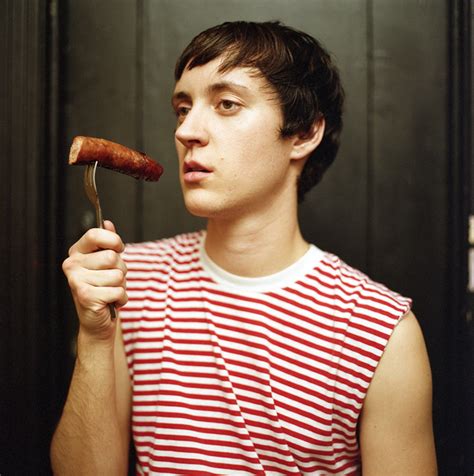A Quote by Sebastian Lelio
I had the idea that I'm going to make a trans-genre film about a transgender woman.
Related Quotes
I am transgender, so 'he' is not appropriate and 'she' is problematic. I haven't been one to wage war with society to force people to address me a certain way. I let people make that decision for themselves. I don't identify as a man, so 'he' is silly in a way. Being called 'she' as a trans person, trans in the sense that I'm trans, is to be honoured in an aspect of yourself.
If you are a LGBTQ person, if you're going to travel somewhere, you do need to be mindful of where you're going, particularly depending on the country. That's just something unfortunately you need to think about. It's something you need to think about if you're a woman, it's something to think about particularly if you're a trans woman, and the problems a lot of trans people face when they're travelling.
There was a time when I first started that there was such a thing called 'a woman's film' and there were certain scripts that women would make. But I think that's changed a lot now. I think that if a woman director walks into a room with a script, it doesn't really matter what the subject matter is, or the genre is, so long as the financers feel that the woman has the skills to make the film.
Well, I think there was a time when I first started that there was such a thing called 'a woman's film' and there were certain scripts that women would make. But I think that's changed a lot now. I think that if a woman director walks into a room with a script, it doesn't really matter what the subject matter is, or the genre is, so long as the financiers feel that the woman has the skills to make the film.
Trans kids are living in the future in a way. When I was growing up, "transgender" wasn't even a word. It wasn't used. Just the naming of something that's invisible, or was thought of as shameful or different - giving it a name that's not a slur is powerful. It's still a little hard to imagine what it might look like growing older as a trans man, but I think that's going to change for the next generation. For trans kids growing up, that visual bridge towards their future selves is starting to develop in conjunction with this trans media wave we're in.
Many in the trans community are fed up with L.G.B.T. organizations that continue to erase trans identity or just give lip service to trans issues. We need our cisgender allies - gay and straight - to treat transgender lives as if they matter, and trans people need multiple seats at the tables in the organizations that say they're interested in L.G.B.T. equality; this absence has been painful since Stonewall.
We had so many milestones in America. We were on our way to universal healthcare. We had gay marriage. We were talking about gender fluidity and trans issues openly and discussing them with respect. It was almost to the point where educating people about transgender rights wasn't an issue. We were including trans people as a normal part of our conversations instead of seeing their presence as this shocking thing to the system. We forgot that those things can be taken away from you because there are people in the world that, for whatever f - king reason, can't live and let live.
We had this idea, and I think a lot of people did going in, that you can make some short film and it's going to get industry attention and that's going to be your thing. And it was only later on at school that we realized that's very rare that a short film is going to capture the attention of anyone.
I had a lot of issues with the genre, and I probably even had issues with the whole idea of genre. I was coming into it with a certain degree of outsider attitude, and I didn't have a long-term plan. But I think the way it's worked out, it's sort of warped into what I suppose you could say is my own genre. If people like my books, they have some idea of what the next one will be like.




































